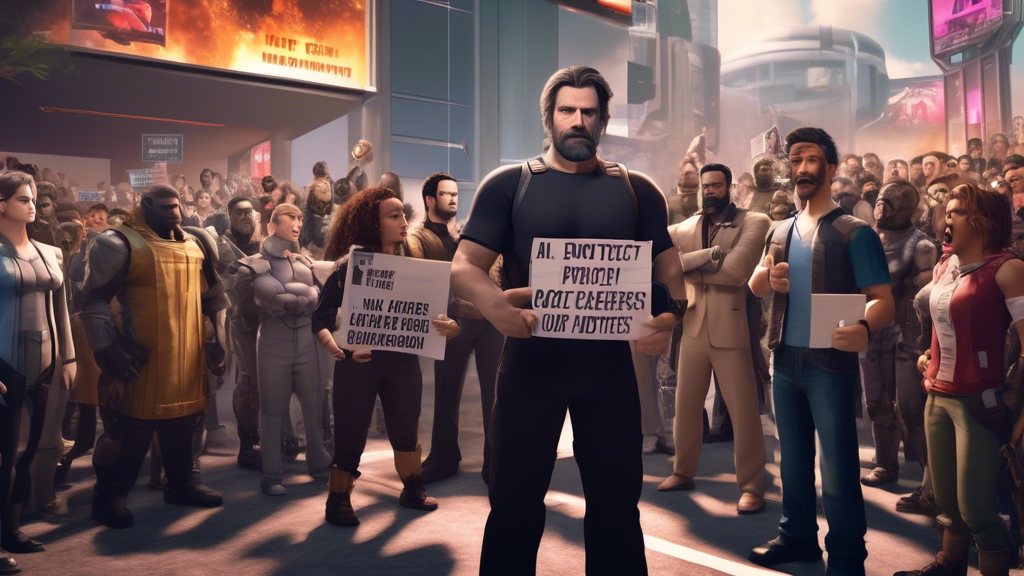In an unprecedented move, video game actors in Hollywood have taken to the picket lines, rallying against the increasing use of Artificial Intelligence (AI) in the industry. This strike signifies a significant moment in the intersection of technology and the performing arts, as actors voice concerns over job security, compensation, and ethical considerations in an AI-driven future.
The Rise of AI in Video Games
Recent advancements in AI technology have made it possible to generate realistic human performances in video games. From voice modulation to facial animations, AI can replicate and even enhance human expressions and interactions. Video game studios have increasingly adopted AI to meet the ever-growing demand for high-quality content at a faster pace and lower cost.
However, this technological leap has raised alarm bells in the acting community. Actors are worried that their roles might be replaced by AI-generated performances, effectively rendering them obsolete. Furthermore, the implications of using an actor’s voice and likeness without proper compensation or consent pose significant ethical and legal challenges.
Actors’ Concerns
One of the primary concerns of video game actors is the potential loss of jobs. Traditional voice acting and motion capture performances are at risk as AI can now mimic these roles. The actors argue that this shift could lead to decreased opportunities and a tightening job market in an already competitive industry.
Compensation is another crucial issue. The use of AI-generated performances often bypasses the need for live actors, leading to questions about how and when actors should be paid for their likeness and voice being used by AI. Current contracts and pay structures may not account for these new uses, leaving actors undercompensated for their contributions.
Ethical considerations also loom large. Many actors are concerned about the unauthorized use of their voices and likenesses. The ability of AI to replicate unique voice patterns and facial expressions raises issues of identity theft and unauthorized exploitation. Actors are demanding stronger legal protections to prevent misuse and ensure they retain control over their digital identities.
Industry Response
In response to the strike, several video game studios and industry stakeholders have expressed a willingness to engage in dialogue with the actors. Some studios have highlighted the benefits of AI in enhancing creativity and efficiency but acknowledge the importance of human input in delivering authentic performances.
Trade unions representing the actors, like SAG-AFTRA (Screen Actors Guild – American Federation of Television and Radio Artists), are actively involved in negotiations. They are advocating for updated contract terms that address the use of AI, ensuring fair compensation and protection of actors’ rights.
Future Implications
The outcome of this strike could set a significant precedent for the broader entertainment industry. As AI continues to evolve, these concerns will likely resonate beyond video games, impacting film, television, and other media sectors. Establishing clear guidelines and protections for actors now could pave the way for harmonious coexistence between AI and human talent in the future.
This strike also underscores the need for ongoing dialogue between technology developers and creative professionals. Finding a balance where AI can be utilized to enhance rather than replace human artistry is crucial. Collaborative efforts will be essential to ensure that technological advancements benefit all stakeholders.
Hollywood Swingers
The Hollywood video game actors’ strike over AI concerns marks a pivotal moment in the industry. As actors fight for job security, fair compensation, and ethical protections, they are also shaping the future relationship between humans and AI in entertainment. The resolution of this strike will likely impact the trajectory of AI integration across various creative fields, highlighting the need for thoughtful and inclusive approaches to technological innovation.


